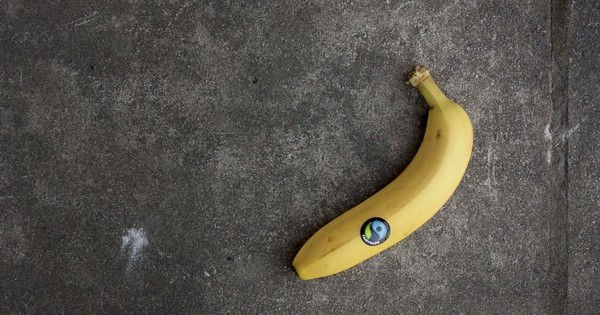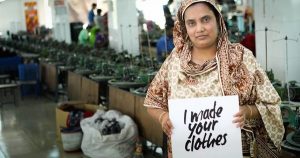Fairtrade International takes prize for most effective label

Despite recent criticisms, a new report shows that Fairtrade International is doing better work than any of its competitors.
Fairtrade International has had a rough few years. The largest and most well-known certifier of fairly-traded bananas, chocolate, coffee, tea, cotton, and numerous other products has come under fire for failing to uphold the level of sustainable development that producers and shoppers expect. As I wrote last summer, “There is a general sense that Fairtrade just doesn’t cut it anymore, that it’s not offering the kind of tangible benefits that make paying the minimum commodity prices and annual premiums worthwhile.”
Meanwhile, it has been facing increasing competition from other fair-trade and sustainable production labels, created by both non-governmental organizations and businesses wanting to get in on the ethical/sustainable action. But these newer labels can be problematic because they’re often tailored to a company’s own specifications, rather than being accountable to external standards.
This month, however, Fairtrade International is having its sweet revenge. It has come out in top place in a report published by Fair World Project, titled “International Guide to Fair Trade Labels,” that analyzed and compared eight fair trade and ethical labels. These labels were selected for analysis because they all have significant credibility within the fair trade movement and are widely available on market shelves. In the report, Fairtrade International (FI) “earned top marks in 31 out of 45 categories – more than any other global label.” From a press release issued by FI:
“Fairtrade International, including its U.S. chapter, Fairtrade America, received high scores in many categories, including the organization’s key areas of impact – protecting the environment via energy, waste and water management; strengthening workers’ rights and prevention of forced labor; advocating for gender equality and rights for disadvantaged, minority and indigenous groups; and fighting poverty through its unique premium payment structure that enables democratic decision making in Small Producer Organizations and Hired Labor Organizations.”
FI’s standards on deforestation and climate change adaptation were praised in the report, as well as its textile standard that “[empowers] workers through leadership opportunities, representation, collective bargaining and living wages.” The fact that Fairtrade is 50 percent owned and run by producers also earned it winning points.
While FI still has room for improvement, specifically in establishing minimum long-term commitments from buyers for all goods and establishing minimum prices that could allow more producers and their organizations to earn a living wage, the report shows that FI is doing better than any of its competitors.
We still need Fairtrade.
This echoes the viewpoint I’ve shared numerous times on TreeHugger, that despite Fairtrade’s struggle to keep ahead when every company is busy creating its own version of an ethical label, flooding the marketplace and contributing to shopper fatigue (not to mention total confusion), it’s still worth supporting. We need FI’s established networks and leadership more than ever in these uncertain times, when climate change threatens the stability of small-scale food producers the world over. Nobody is better positioned than FI is right now to “hold companies accountable to an external standard and empower farming communities to make their own decisions,” and we can support their work by looking for the famous black-and-blue yin-yang symbol whenever we shop. It might not be perfect, but it’s the best we’ve got.
Nor is FI going to stop striving to improve itself. In the words of CEO Dario Soto Abril, “We are honored that Fairtrade International continues to be recognized as a global leader in sustainability and ethical standards. But we’re never complacent. We know there is still much more to do before we achieve trade justice, including decent incomes for workers and producers, which we are actively working to achieve.”
Other fair trade labels analyzed were ATES (Association for Fair & Sustainable Tourism), Biopartenaire, Fair for Life, Fair Trade USA, Naturland Fair, Small Producers’ Symbol (SPP), and World Fair Trade Organization (WFTO). Read the full report here.
Despite recent criticisms, a new report shows that Fairtrade International is doing better work than any of its competitors.







